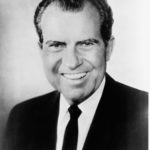 Recent research from Aston University found that the way politicians smile can affect how people feel about them and their ideas. The study focused on two types of smiles: the “reward” smile, which is genuine and joyful, and the “affiliative” smile, which is friendly and welcoming.
Recent research from Aston University found that the way politicians smile can affect how people feel about them and their ideas. The study focused on two types of smiles: the “reward” smile, which is genuine and joyful, and the “affiliative” smile, which is friendly and welcoming.
“The human smile can convey both rewarding and affiliative social intent and thus has significant utility in politics, where the ability to bond with and reassure voters is vital to electoral success,” the researchers explain. “Given that almost all politicians involved in these [upcoming] election campaigns will make full use of broadcast media to reach voters, it is crucial to understand the effectiveness of their non-verbal displays in shifting voting preference.”
The power of a smile
Using videos from the 2019 UK general election, the researchers looked at the smiles of leaders like Boris Johnson, Jeremy Corbyn, and Jo Swinson. They showed these videos to supporters of each party before and after the election to see how their emotions changed.
The results showed that Johnson’s friendly smile after winning the election made people from all parties happier and more supportive of him. But when Labour supporters saw Johnson’s happy smile, it actually made them angrier.
Corbyn and Swinson didn’t have the same effect with their smiles. They didn’t change people’s feelings much, unlike Johnson, whose smile seemed to win people over. This suggests that Johnson was better at connecting with voters, especially with his simple message about Brexit.
Non-verbal cues
This study adds to what we know about how non-verbal cues, like smiles, can shape our opinions of leaders. It also highlights the need for more research outside the US on how facial expressions influence voter behavior.
“A smile can’t win an election on its own,” the authors conclude. “The upside for today’s politicians is that charisma is not an innate quality. It can be taught. By paying attention to their facial behavior and ensuring they display the right smile in the right context, they can still leverage the power of emotional responses. It is something leaders of all organizations can learn.”